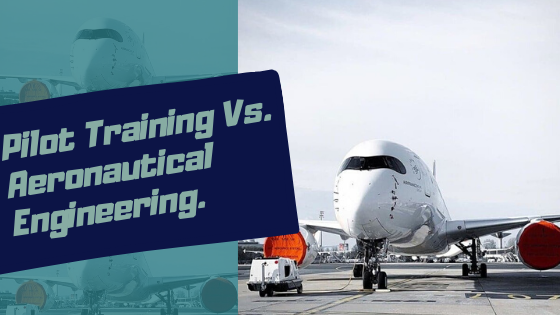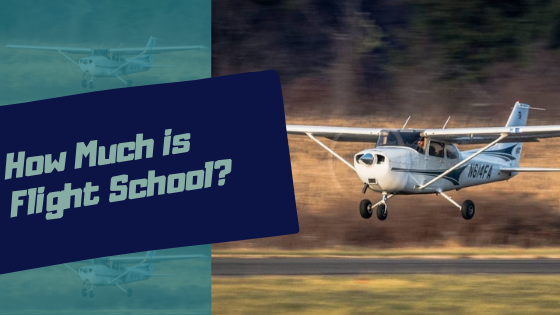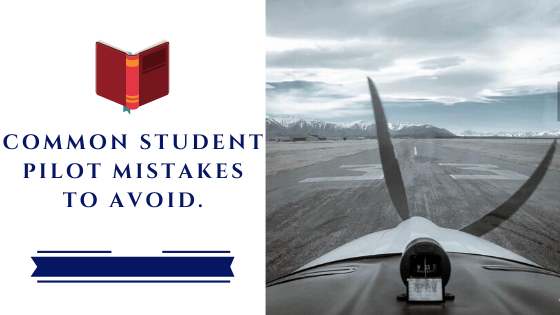Pilot training vs Aeronautical engineering.

Many of us have limited knowledge of aviation. Either pilot or aeronautical engineering, both of these are reputed professions in the aviation industry.
Knowing these two professions’ differences and the opportunities ahead will help anyone decide.
I did my best to clarify all about pilot training vs. aeronautical engineering, which will be in demand in the future.
What is pilot training?
Pilot training is learning how to fly an airplane and get a pilot license.
Individuals may train for a PPL or a commercial pilot license according to specific goals.
Students usually go to flight schools to train as a pilot. To qualify as a commercial pilot, a person must pass 12th grade.
During the pilot training process, a pilot student will have ground classes to learn essential things in multiple subjects.
Once ground schooling for a pilot license completes, the pilot student has to fly the actual airplane to meet the flight hour requirements.
That is one reason why flight training is expensive.
Opportunities after pilot training.
After an individual completes their commercial pilot training, the person merely has permission to work as a professional pilot.
However, the opportunities are limited for a fresh graduate.
Remember this:
To work professionally, a pilot must acquire a commercial pilot license and hundreds of hours of flying experience.
People often confuse private pilot license restrictions and commercial pilot license privileges.
A private pilot can fly to build hours but cannot accept any compensation in return.
A commercial pilot license allows somebody to work as a pilot and a private pilot license restricts you from working.
RELATED: What can you fly with a PPL?
But to work as a pilot in the airlines require more experience and flying hours, as I mentioned earlier.
Like any other profession, being hired as an airline pilot immediately after acquiring your license is unnatural.
Airline pilots are responsible for flying with hundreds of passengers; therefore, the airlines pay a handsome salary to the pilots.
Reaching an airliner cockpit requires dedication, hard work, and patience.
What is aeronautical engineering?
Aeronautical engineering is a bachelor’s degree, which takes four to five years to complete. Aeronautical engineering is the study of designing and improving models of aircraft.
A professional aeronautical engineer specializes in various subjects associated with aircraft.
Such as, one aeronautical engineer might be an expert in:
- Airplane rudder;
- Airframe.
Then the other individual engineer may have more knowledge on:
- Aircraft electronics;
- Aerodynamics.
Aeronautical engineering is often confused with aerospace engineering and astronautical engineering.
Let me remove all the confusion today.
Aerospace engineering is the actual degree one may choose to enroll in college.
Aeronautical engineering and astronautical engineering are two branches of aerospace engineering.
An aerospace engineering student has to pick from these two branches according to their career goals in the aviation industry.
Aeronautical engineers are experts in designing aircraft and improving their efficiency.
On the contrary, astronautical engineers design and develop space crafts.
Opportunities for aeronautical engineers.
After graduating as an aeronautical engineer, it will not be easy to land your first job.
An aeronautical engineer has to practice for years before obtaining a professional license.
The professional aeronautical engineer’s license proves that you have hours of experience in the hangar maintaining aircraft.
Until you get a professional aeronautical engineering license, you will have to work hard, and the wage will be minimum.
Once you have your professional aeronautical license and plenty of experience, you can apply for more reputable companies like Boeing or Airbus.
Even airlines require aeronautical engineers to maintain the aircraft.
Thus there is a vast opportunity for aeronautical engineers and a considerable salary.
Nevertheless, to reach there, an aeronautical requires years of experience, likewise a pilot willing to work in the airline.
Which path should you choose?
Pilot training vs. aeronautical engineering these two paths will allow you to work in the aviation industry.
If you are an aviation enthusiast, becoming a pilot or working as an aeronautical engineer will not make much difference. In both cases, you will be working with the aircraft.
Ultimately, the choice belongs to you.
If you are fond of operating an aircraft in the sky, becoming a pilot is the best option.
What if you are not interested in flying an airplane? If you are more interested in the technical stuff of an aircraft, then you must choose aeronautical engineering.
Similarly, I want to say that both as a commercial pilot and an aeronautical engineer, you will have numerous opportunities to work in the aviation industry.
You may have to wait years to land your first airliner job as a commercial pilot. Likewise, an aeronautical engineer must practice for years before getting a dream job in the aviation industry.
Can an aeronautical engineer become a pilot?
YES, an aeronautical engineer can become a pilot. One can become a pilot by taking the essential flying lessons from a flight school.
If you are an aeronautical engineer with the time and money, why not get your pilot license?
RELATED: Can you do pilot training after engineering?
The real question must be, why do you want to become a pilot?
If you want to become a pilot and fly an airplane as a hobby, get your private pilot license.
Being an aeronautical engineer has nothing to do with obtaining a pilot license.
It will be more natural for an engineer to understand flight-relevant subjects quicker than a high school graduate.
RELATED: What should I study to become a pilot?
If you look forward to being a commercial pilot, you must invest more time and money. You will require more time commitment for the commercial pilot license course.
With an aeronautical engineering degree and a commercial pilot license, you can get a commercial pilot job better.
RESOURCES:




Is it possible to do commercial pilot training alongside with aeronautical engineering???
Or is it just better to first get a graduation degree and then do pilot training???
Also is it worth to take a student loan for pilot training???
If you are determined to become a pilot, I recommend finishing your engineering first and then focusing on getting your pilot licenses. Take one step at a time.
Many student pilots get student loans to complete their pilot training. If you get a student loan, your priority should be getting a job as early as possible after getting your commercial pilot license. Without a job, you will have a hard time repaying your debts. However, it’s pretty easy to get a job as a pilot, especially with an engineering degree.